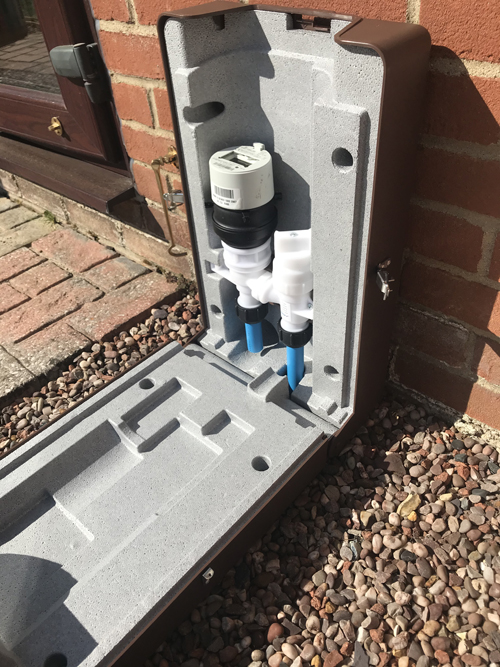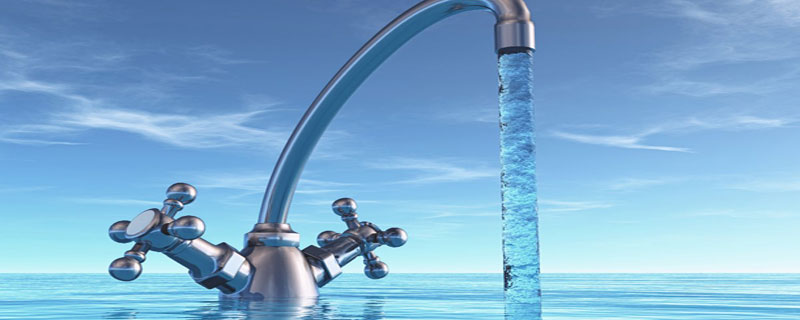In the UK water conservation has been almost treated with derision. Excepting the summer of 1976, water restrictions are limited to occasional hose pipe bans. However, the wider impact of excessive water usage is now becoming recognised.
“Water is the primary medium through which we will feel the effects of climate change.”1
United Nations, Water Facts
Even in our ‘green and pleasant land’ the change in weather patterns due to global climate change have resulted erratic rainfall patterns, leading to (mostly) short term supply issues, which can impact on our green spaces and countryside. In addition to these ‘direct impacts’, the process of cleaning, processing, and heating water accounts for 6% of CO2 emissions in the UK.2
To date few people have made the link between the water coming out the tap to local environment. However, the connections between water, the environment and energy costs are being highlighted by organisations as diverse as the United Nations through to local conservation groups.
‘The energy used to heat water for devices and appliances emits an average of 875kg of CO2 per household per year. This is equivalent to the CO2 emissions from driving more than 1,700 miles in an average family car.’ 3, 4
Energy Saving Trust
At the 2022 Waterwise conference, Prof Liz Sharp, University of Sheffield, explained that research had shown that the water efficiency message in itself had little impact on behaviour. The relative cost of water is low, so monetary savings in not a good incentive. Conversely, links with wider issues of interest to a particular community could.
To many, the more immediate issue is energy prices, approximately 17% of energy used in the home is to heat water.5 Whilst water efficient appliances, i.e. dishwashers and washing machines, can reduce domestic water and energy usage, much of this hot water used in ‘time critical’ usage e.g. taking a shower or running the tap to rinse dishes.
Future proof properties
Water Metering is the future. Utility companies have not been slow in recognising the benefits of a ‘Smart Buildings’. The ability to interrogate and manage energy usage at any given time of day or night has been recognised as an effective way for organisations to reduce usage and manage costs.
Gas and electricity meters located on external building walls has enabled easy upgrades and introduction of countrywide ‘Smart Meter’ programme. However, the traditional location of a water meter in a metal-covered hole in the public highway is not conducive to this new way of thinking. A ‘Smart Water Meter’ located in such a situation is exceedingly poor in transmitting a signal even to a local pick up.

The best location for a ‘Smart Water Meter’ is on an external property wall – co-located with other utility meters. With Groundbreaker water management system, properties are future proofed to allow for easy installation of ‘Smart Water Meter’ technology as it is introduced across the UK.
Recent field trials of Groundbreaker have proven that the range of such meters can be over 3Km (2 miles). The impact on data collection is massive. The improved data transmission range could allow for single point data capture in towns the size of Norwich or Coventry.
This ability to link into ‘Smart’ Building Management systems also allows for organisations to monitor for exceptional usage and potential identify maintenance issues or leaks.
Design out leak paths:
Comply with Water & Construction Industry Guidelines comply with “Water Safe” initiatives
Another benefit of the unique location of the Groundbreaker water management system is that it allows for an unjointed water supply, minimising the risk of developing future leaks. Installation of Groundbreaker meets the best recommendations of Water UK and the Home Builders Federation6 and in some water company areas, such as Portsmouth Water, are now the standard required for all new properties.
Bringing Water Supply into the 21st century
If you are looking for a way to bring water services into the 21st century, Groundbreaker’s range of water supply management products can be the way forward for time and cost-efficient installation and replacement of water supply and allow for future site redevelopment with minimal environmental cost.
Steve Leigh FIWater, Managing Director Groundbreaker Systems
Groundbreaker Systems won the HBF’s ‘Utility of the Year’ in 2018.
www.groundbreaker.co.uk
1. LINK
2. Environment Agency (2008): Greenhouse gas emissions of water supply and demand management options, Science Report – SC070010
3. Ref: An average passenger car (any fuel) emits 0.311 kgCO2 per mile. Source: 2012 Guidelines to Defra/ DECC’s GHG Conversion Factors for Company Reporting.
4. LINK
5. LINK
6. For further information, check the Home Builders Federation Guidance. LINK





Leave a Reply
Want to join the discussion?Feel free to contribute!